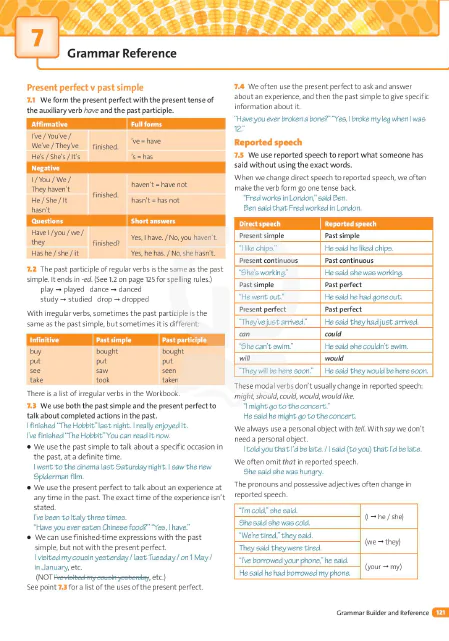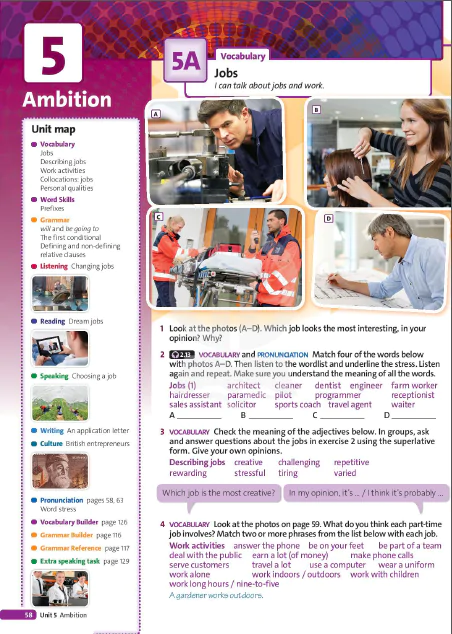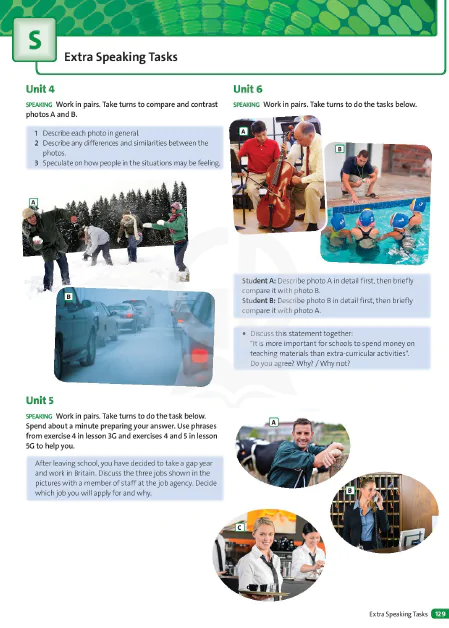Nội Dung Chính
(Page 123)
The passive (present simple and past simple)
8.1 We form the passive with the correct tense of the verb be and the past participle.
These cars are made in Germany ... (present)
This computer was made in Japan. (past)
The passive can be affirmative, negative or interrogative.
| Present simple | Past simple |
| Affirmative | |
| They are powered by electricity. | it was powered by steam. |
| Negative | |
| Cricket isn't played in many countries. | Basketball wasn't played in the 18th century. |
| Questions and short answers | |
| Are they grown in Europe? Yes, they are. / No, they aren't. | Was it built by the Rome? Yes, it was. / No, it wasn't. |
8.2 We use the passive when either we do not know who or what performed the action, or we do not want to focus on who or what performed the action.
My laptop was stolen last weekend.
If we want to say who performed the action, we use by.
My house was designed by a famous architect.
8.3 When we use adverbs with the passive, we usually put them immediatelly before the past participle.
Phones are often used as video cameras.
It was probably discovered by the Ancient Greeks.
The passive (present perfect, future and modal verbs)
8.4 We form the present perfect passive like this: present perfect of the verb be + past participle of the main verb
| Affirmative |
| The room has been tidied. |
| Negative |
| The room hasn't been tidied. |
| Questions and short answers |
| Has the room been tidied? Yes, it has. / No, it hasn't. |
8.5 We form the future passive like this: will / would + be + past participle of the main verb.
| Affirmative |
| Teachers will be replaced by robots. |
| Negative |
| Teachers won't be replaced by robots. |
| Questions and short answers |
| Will teachers be replaced by robots? Yes, they will. / No, they won't. |
8.6 We form the passive with modal verbs as follows: modal (+ not) + be + past participle of the main verb.
| Affirmative |
| Photos can be taken with a blink of the eye. |
| The new gadget may be developed. |
| Negative |
| Photos cannot be taken with a blink of the eye. |
| The new gadget may not be finished in time. |
| Questions and short answers |
| May the new gadget be developed sooner than we thought? Yes, it may. / No, it may not. |










































Bình Luận
Để Lại Bình Luận Của Bạn